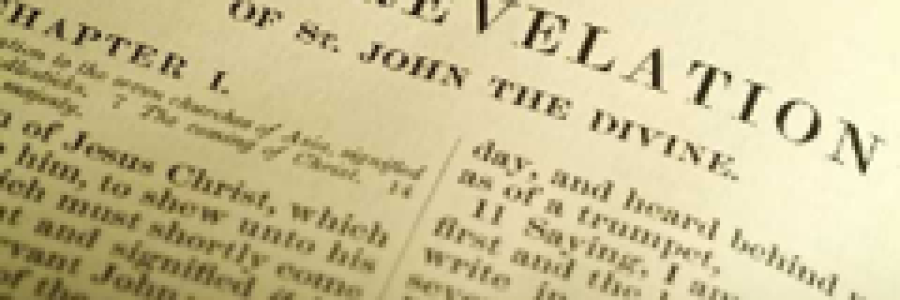Dispensacionalismo
Body
Dispensacionalismo
Discussion
A Dispensational Discourse with Dr. Robert Lightner
Posted with permission from Dispensational Publishing House.
One of the wonderful privileges that I have in my role with Dispensational Publishing House is the opportunity to interact with great Bible teachers, pastors and other authors. One such man is Dr. Robert Lightner. I have heard of him for many years, as he was a seminary professor to my own teachers, and I was also acquainted with the wealth of his written materials. We share a common heritage in the General Association of Regular Baptist Churches. I am so grateful for the faithful testimony of this man over many decades. And I am pleased to announce that Dispensational Publishing House will be publishing two new books from him: Christ: His Church, His Cross, His Crown and Heaven and Hell. How blessed we are to introduce him to you here, first, in this interview article, where we are able to profit from Dr. Lightner’s observations regarding dispensational theology across the decades of his ministry.
So now, brethren, I commend you to God and to the word of His grace, which is able to build you up and give you an inheritance among all those who are sanctified. (Acts 20:32)
Dr. Robert Lightner has been a fixture at Dallas Theological Seminary for nearly 50 years. Doubtless like many of his own students, he traces his understanding of dispensational theology to some very influential professors.
Discussion
Theology Thursday - "Selective Literalism" & the Book of Revelation
This is a small excerpt from an article by Gordon Fee, “Preaching Apocolypse? You’ve Got to be Kidding Me!?” in Calvin Theological Journal 41 (2006).
Discussion
Dispensationalism 101: Part 2 - Covenental Thought
From Dispensational Publishing House; used with permission.
Last time, we began this series by considering the difference between dispensational and covenantal theology. We thought about some basic things that we must understand in order to deal properly with that issue. We begin this article with a brief review.
Covenantalism in a Nutshell
The terms covenantal and Reformed are often used interchangeably. There are dispensationalists who speak of being Reformed, yet the way they use the term Reformed is in respect to salvation, referring to the doctrines of grace. Another might refer to himself as a Calvinist-dispensationalist, but this is a rather awkward phrase, since Calvinism is typically used in the discipline of soteriology, not eschatology. This designation would be used to refer to men like John MacArthur and faculty from his school, The Master’s University,1 and others who have embraced the doctrines of grace and who apply a consistently literal hermeneutic, especially in the prophets, while not reading Jesus into every Old Testament verse or giving the New Testament priority.2
Discussion
Dispensationalism 101: Part 1 - The Difference Between Dispensational & Covenantal Theology
From Dispensational Publishing House; used with permission.
What is the difference between dispensational and covenantal theology? Furthermore, is the difference really that important? After all, there are believers on both sides of the discussion. Before entering into the conversation, there are a couple of understandings that need to be embraced.
Tension & Mystery
First and foremost, there is the need to recognize the tension—and mystery—which has characterized this and other theological discussions for centuries. There will probably never be a satisfactory answer or clarifying article that will settle the debate once and for all for both parties. There will be no end to the discussion until Jesus Christ returns (either in the rapture of His church or earthly millennial reign, in my estimation).
Discussion
A Dispensational Discource with Dr. Michael Vlach
From Dispensational Publishing House; used by permission.
I have been following the teaching and writing ministry of Dr. Michael Vlach for several years—since the publication of his book, Dispensationalism: Essential Beliefs and Common Myths (Theological Studies Press, 2008). I am continually impressed and challenged by his desire to apply biblical truth with precision and clarity. Dr. Vlach is having a great influence at The Master’s Seminary—both as a professor and as editor of the school’s theological journal. It is my privilege to introduce him to you so that you can learn more about this up-and-coming dispensational theologian.
Be diligent to present yourself approved to God, a worker who does not need to be ashamed, rightly dividing the word of truth. (2 Tim. 2:15)






Discussion